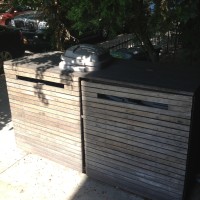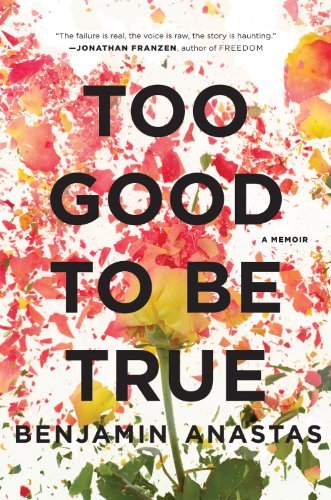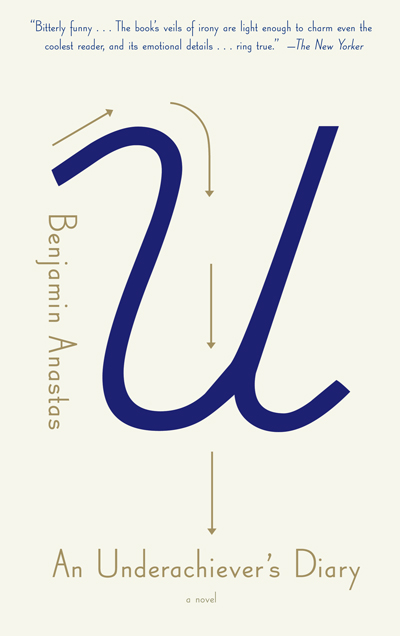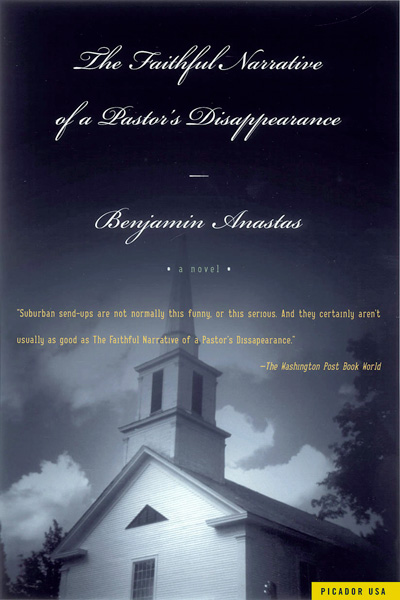I keep my net worth in a white cardboard box. Right now it’s sitting in the front hallway of my summer sublet in Brooklyn, a wet pair of kid’s sneakers on top to dry (they got soaked in a thunderstorm). At other times I’ve stored this box under my dining room table, at the bottom of the closet in my son’s room, and in the back seat of my car. Don’t worry: this isn’t the kind of wealth that anyone can steal. I don’t have to track its quarterly performance and pay fees to an investment brokerage for managing it; I’ve never had to sweat out a panic sell-off or a market downturn. That cardboard box, and what I keep inside, has its own kind of magic. It is safer than an annuity, more dependable then gold. It keeps growing and growing. Pretty soon I’ll have to get another box to take the overflow.
So what’s my secret investment strategy? Maybe you’ve figured it out already. That white cardboard box is labeled BILLS. My net worth is in the negative, just like an estimated 20% of American households, and God knows how many of the legion who keep arriving in New York City every year with nothing more than the fancy degrees their student loans paid for and the ambition to make their way in the underpaid precincts of “culture.” I’m a writer, which means, by definition, that I am a gambling addict; every project undertaken is a bet on future earnings, a way of borrowing against the present in the expectation of beating the house. As F. Scott Fitzgerald put in his essay “Early Success,” about the manuscript that would become This Side of Paradise: “That novel … was my ace in the hole.” The box in my front hallway is where I store the paper trail of the bets I’ve lost; others that paid off, but without a life-changing windfall; the accumulated liabilities of my literary habit and the calamities that make life such a gamble no matter what you do for a living. It is the anti-fortune I’ve built by caring more about what I wanted to write next than how I could afford it.
Go ahead, have at me. Call me just another artist type who feels entitled to a free ride while he scribbles to no one’s benefit in an $18 notebook. I’ve heard worse, and that was on Goodreads. The line about scribbling in an $18 notebook? I sometimes turn it on myself. I am trying, at 44, to change my attitude about money, and that involves some soul searching. It’s not easy to stare down an ever-shrinking road to the thing that used to be called “retirement” and realize that you’ll be working until you drop—that is, if I am lucky enough to still have my teaching job. It’s not a given, and with tenure-track jobs in academia in steady decline, according to Inside Higher Ed, I might just be looking at a future measured out in temporary contracts. That seems great now, but what about if I’m up for review again at 55 while my son is applying to college? With no savings to fall back on for his tuition payments and that white box still following me around?
The future is already here, and I am not prepared for it. Elvis Costello has a phrase for everything, and this is mine: I’m a man out of time.
Net worth has been a lot on my mind lately. And not just for the reasons that I’ve described above. While I’ve been lugging my box of liabilities from apartment to apartment, trying to stay one step ahead of the booming rental market in Brooklyn, everyone else, it seems, has gotten rich. In Park Slope, where I lived for two years in a constant state of terror that my next late payment would get my son kicked out of preschool, the professional nannies ruled the sidewalks by day and every weekend in Prospect Park felt like Casual Friday at the law firm. Next came Clinton Hill, where I watched the population in the elevators of my rent-stabilized building turn steadily younger, hipper, more monied and white; let’s call it the Flea-ifying of the neighborhood. I’m in Boerum Hill now, which I hardly recognize when I go out and walk the streets. All the house numbers are brushed aluminum; the windows give a glimpse of spacious, airy rooms furnished from Design Within Reach and gleaming kitchens that look like Donald Judd installations. Some of the custom bins for trash and recycling that abut the sidewalk look like nice places to live. I’ve thought about making an offer before, but what about the foot traffic? Or if someone went dumpster diving for expired truffle oil in my living room?

Even the city’s new fleet of shared bikes come emblazoned with a bank logo; three Citibikes sliced past me in Ft. Greene the other day and they looked like bank cards with pedals. Do they also come with a PIN and overdraft protection? If I ride a Citibike, will it somehow result in more payouts to Bob Rubin and Larry Summers?
Everywhere I look this summer, I see the wealth I might have earned if I’d made it more of a priority—if I’d studied engineering in college instead of English and gotten into software coding early enough to make a fortune and retire at 35; or if I’d gotten an M.B.A. right out of school instead of an M.F.A. in fiction; or even if I’d just started teaching earlier and banked my book advances instead of blowing them on foreign travel and living expenses. I’d have a nice little nest egg to go along with a retirement fund with TIAA-CREF, either that or I’d own a house in a less expensive city and my book advances would now be equity I could count on. (That is, unless my mortgage was upside-down.)
In the spirit of schadenfreude, the German compound word for taking pleasure in the misfortune of others, I’ve come up with a new term to describe the dreamy state I find myself in this summer: verdienstausfallbedauern. It comes from verdienstausfall, or “the loss of earnings,” and bedauern, “to regret.” Mashed together in the German way it means “the regret of lost earnings.” There is a hint of eigenkapitalunmut (“net-worth chagrin”) implied, and also vermögensbedauern (“wealth regret”), which eventually hits us all. The causes of verdienstausfallbedauern are many, and there is no telling when it will find you with your defenses down. Maybe you’re out of work. Maybe you took a big risk and started a business that failed. Maybe you showed up for your first divorce hearing to discover that your spouse was represented by Raoul Felder. Or you could just be finishing up that novel manuscript and preparing, after three or four years, to confront your pile of unopened mail. In any case, you’ve reached the point in life when your mistakes about money have all come home to roost, and you fear the damage—this time—may be permanent. You are fresh out of second acts.
The symptoms of verdienstausfallbedauern are not always easy to identify, but here are a few warning signs to look out for:
(1) Do you tear up while standing at the window of realty offices, staring at the obscene rent for apartments you used to able to afford and asking prices for brownstones that look like they’re in Italian lire?
(2) Sometimes, do you find yourself computing the prices in your head of the different items that a stranger’s child is wearing, starting with the light-up Skechers on their feet ($44)?
(3) That Audi S7 parked on the street—I repeat, parked on the street—do you feel the urge to fall to your knees and kiss the front grille?
(4) When you pass the brunch crowd milling around outside a trendy restaurant on weekends, are you tempted to sidle up to a group of strangers and pretend you’re part of their party so they’ll take you out? (Brunch is not in your budget when you have a case of verdienstausfallbedauern.)
If any of this sounds familiar to you, don’t worry. You’re not alone. There’s no need to see the psychopharmacologist and have your meds adjusted. You’re in the grip of a common regret that, up to now, dared not speak its name in German. And there might be no earning your way out of it.








